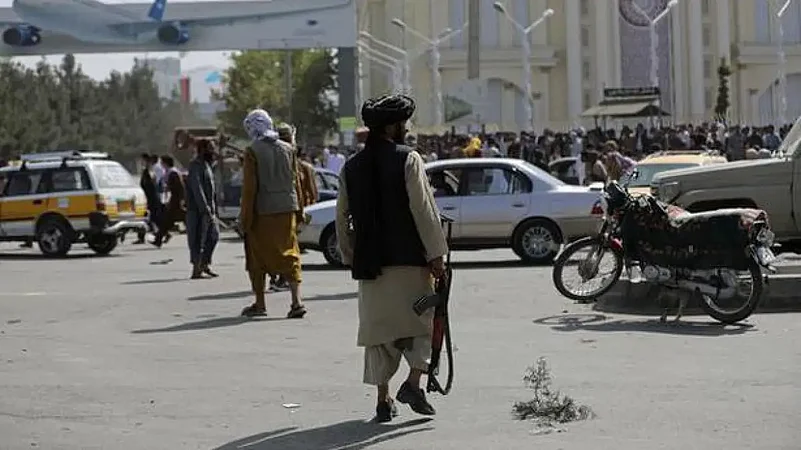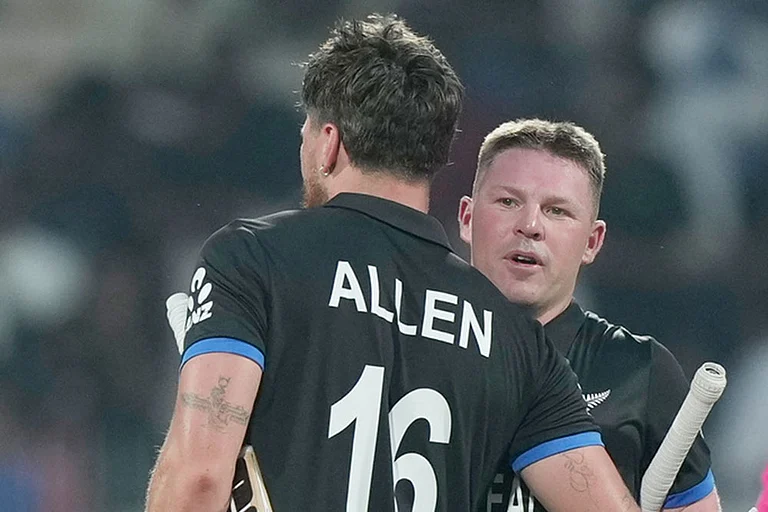Like many other countries, India has been sending humanitarian aid to Afghanistan, but for the first time since the Taliban takeover of a middle-level office, Joint Secretary J.P.Singh who looks after Pakistan, Afghanistan and Iran is travelling to Kabul to oversee the delivery. This comes in the wake of persistent speculation that India may be ready to send diplomats back to Kabul.
Though Arindam Bagchi, MEA spokesman, has cautioned reporters in his weekly briefing on Thursday not to read too much into this, some cautious prodding by India to re-open the main mission in the Afghan capital is certainly afoot. The MEA maintains that the embassy in Kabul has not been closed as the local staff are still there and look after the upkeep of the embassy. However, no official based in Delhi is in Afghanistan, since the security situation in the country compelled most foreign missions to evacuate their personnel last August, ahead of the Taliban’s entry to the capital.
No details are available about the rest of the team accompanying J.P.Singh on this mission. Whether and when New Delhi may think it safe to get the embassy working is not known, however, it is certain that some amount of backdoor leg work has been done ahead of the visit. Singh is likely to touch base with senior members of the Taliban to discuss India’s humanitarian aid to the people of Afghanistan, the MEA said. The Taliban government had been asking foreign missions to return to the capital since taking over, but few had responded. China, Russia and Pakistan had not shut down their embassies in Kabul after the Taliban takeover.
"During the visit, the team will meet representatives of the International Organisations involved in the distribution of the humanitarian assistance. In addition, the team is expected to visit various places where Indian programmes/projects are being implemented,’’ the MEA said in a statement earlier in the day.
Without some assurance from the Taliban government New Delhi would not send officials to Kabul.
The Taliban is desperate for assistance and despite New Delhi’s earlier cold vibes with the group, pragmatic considerations are compelling both sides to forget the past. Unlike many other countries, India had refused to deal with the Taliban while former President Ashraf Ghani was in power. Even when former president Hamid Karzai, as well as the Russians and Americans, had advised India to begin talks with the Taliban, New Delhi had not done so. Very late in the day, India did interact with the Taliban in Doha, but from all accounts, the meeting did not go well. The situation has obviously changed now.
India appears ready now for engagement with the Taliban. It is well known that India was hated during the first stint of the Taliban rule, as New Delhi together with Iran and Russia had supported the Northern Alliance against them. But India was able to turn things around with its development assistance and was soon spreading its wings in Afghanistan. This was a major concern for Pakistan and the ISI is said to have played a part through the Haqqani network to strike at Indian interests, including a blast that killed India’s defence attaché and a young diplomat in Kabul. Again India is making a tentative move to bounce back in Afghanistan.
So far India had sent several shipments of humanitarian assistance consisting of 20,000 MTs of wheat, 13 tons of medicines, 500,000 doses of COVID Vaccine and winter clothing. These consignments were handed over to the India Gandhi Children Hospital, Kabul and UN specialized agencies including WHO and WFP. Furthermore, India is in the process of shipping more medical assistance and food grains to Afghanistan.
India has also gifted one million doses of India-made COVAXIN to Iran to administer to Afghan refugees in Iran. New Delhi has provided UNICEF with almost 60 million doses of polio vaccine and two tons of essential medicines.



























